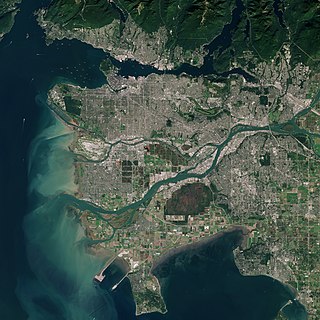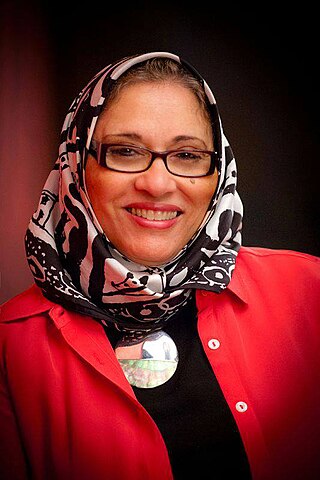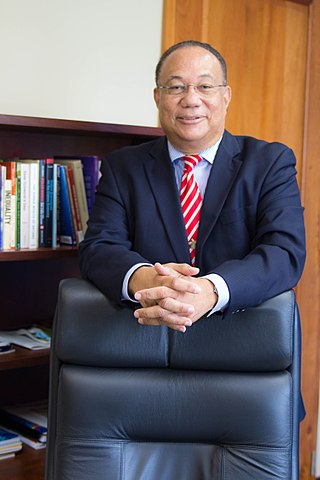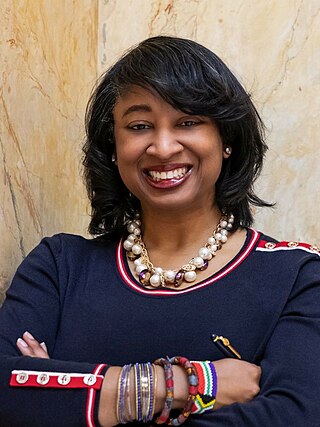
The Metro Vancouver Regional District (MVRD), or simply Metro Vancouver, is a Canadian political subdivision and corporate entity representing the metropolitan area of Greater Vancouver, designated by provincial legislation as one of the 28 regional districts in British Columbia. The organization was known as the Regional District of Fraser–Burrard for nearly one year upon incorporating in 1967, and as the Greater Vancouver Regional District (GVRD) from 1968 to 2017.

The Canadian Federation of Engineering Students (CFES) (Fédération canadienne étudiante de génie in French) is the national association of undergraduate engineering student societies in Canada and exists to organize activities, provide services and interact with professional and other bodies at the national and international level for the benefit of Canadian engineering students. The organization is a bilingual non-profit corporation based in Ottawa, Ontario, Canada, managed by a volunteer team of engineering students and recent graduates from across Canada.

Mark Raymond Kennedy is an American businessman, politician, and university administrator. Following a career as a business executive, he served as a Republican member of the United States House of Representatives from Minnesota from 2001 to 2007. Kennedy did not seek reelection in 2006, instead running in the 2006 election for U.S. Senate, which he lost to Democratic–Farmer–Labor nominee Amy Klobuchar.

The Canadian Labour Congress, or CLC is a national trade union centre, the central labour body in Canada to which most Canadian labour unions are affiliated.
Stanley Kazmierczak Keyes, is a Canadian diplomat and former politician.

The Canadian Internet Registration Authority is the organization that manages the .ca country code top-level domain (ccTLD) for Canada. Its offices are located at 979 Bank Street in Ottawa, Ontario, Canada. CIRA sets the policies and agendas that support Canada's internet community and Canada's involvement in international internet governance. It is a member-driven organization with membership open to all that hold a .ca domain. As of March 2023, there were more than 3.3 million active .ca domains.

The National LGBT Chamber of Commerce (NGLCC) is a U.S. not-for-profit advocacy group that aims to expand the economic opportunities and advancement of the LGBT business community. Its headquarters are in NW in Washington, D.C. NGLCC is the exclusive certifying body for LGBT-owned businesses known as LGBT Business Enterprises (LGBTBEs), and advocates for LGBT business inclusion in corporate and government supplier diversity programs. In October 2017, the organization changed its name from the National Gay & Lesbian Chamber of Commerce to National LGBT Chamber of Commerce to better reflect the entire LGBT business community it serves.

The Metro Vancouver Transit Police (MVTP), previously the Greater Vancouver Transportation Authority Police Service and formally the South Coast British Columbia Transportation Authority Police Service (SCBCTAPS), is the police force for TransLink, the public transit system of the Metro Vancouver region of British Columbia, Canada.
Dave Sukhdip Singh Hayer is a former Indo-Canadian politician for the province of British Columbia. He served as member of the Legislative Assembly (MLA) for Surrey-Tynehead from 2001 to 2013. Hayer is the son of assassinated journalist Tara Singh Hayer.

Naomi Yamamoto is a Canadian politician who served as a member of the Legislative Assembly (MLA) of British Columbia, representing the electoral district of North Vancouver-Lonsdale from 2009 to 2017. As part of the British Columbia Liberal Party caucus, she was a cabinet minister under premiers Gordon Campbell and Christy Clark. She is the first Japanese Canadian member of the BC legislature.
Donald Blake Rix, was a Canadian pathologist, philanthropist, community volunteer, and businessman. He was the founder and chair of MDS Metro Laboratory Services, the largest private medical laboratory in Western Canada.

The Association of Governing Boards of Universities and Colleges (AGB) is a nonprofit 501(c)(3) U.S. higher education association established in 1921. AGB serves approximately 2,000 colleges, universities, and institutionally related foundations. The association provides research, publications, programming, and consulting services to support higher education governance. AGB is located in Washington, D.C.
Founded in 1883, the American Seed Trade Association (ASTA) is one of the oldest trade organizations in the United States. Its membership consists of over 700 companies involved in seed production and distribution, plant breeding, and related industries in North America. As an authority on plant germplasm, ASTA advocates science and policy issues related to the development, marketing and movement of seed, associated products and services throughout the world.

Soumaya Khalifa is the founder and executive director of the Islamic Speakers Bureau of Atlanta. She is an American Muslim of Egyptian origin, with a career in Human Resources and a consulting practice specializing in intercultural communications, leadership development and corporate diversity.

Zabeen Hirji is a former Chief Human Resources Officer and a former member of the Royal Bank of Canada (RBC) Group Executive in Toronto from 2007 to 2017.
The Chicago Philharmonic is an American orchestra based in Chicago, Illinois, governed by the Chicago Philharmonic Society. Founded in 1988 by principals of the Lyric Opera Orchestra of Chicago, it is a musician-governed, non-profit organization consisting of nearly 200 classical music performers from the Chicago area. Since 2013, the Artistic Director and Principal Conductor has been Scott Speck.

Richard L. Bernal, OJ was a Jamaican economist and diplomat. Bernal served as the Jamaican Ambassador to the United States from 1991 to 2001, simultaneously holding the post of Permanent Representative of Jamaica to the Organization of American States. As of March 2016, Bernal held the post of Pro Vice-Chancellor for Global Affairs at the University of the West Indies (UWI). Bernal was a Member of the Order of Jamaica. In 2018, he was made a Professor of Practice (PoP) in international economic policy at The UWI. Bernal was a Member of the Leadership Council of the United Nations Sustainable Development Solutions Network. He was also a member of the Board of Directors at Laspau, Harvard University.
Sameer Zuberi is a Canadian politician who was elected to represent the federal riding of Pierrefonds—Dollard in the House of Commons of Canada in the 2019 Canadian federal election, sitting as a member of the Liberal Party. He is the Parliamentary Secretary to the Minister of Diversity, Inclusion and Persons with Disabilities, and he serves on the Standing Committee on Foreign Affairs and International development.

Renetta Garrison Tull is an American electrical engineer, global policy strategist, and works to advance diversity and inclusion in science, technology, engineering, and mathematics (STEM). Tull is the inaugural Vice Chancellor of Diversity, Equity, and Inclusion at University of California, Davis and a founding Director of the National Science Foundation funded program PROMISE: Alliances for Graduate Education and Professoriate, which aims to increase the number of underrepresented students in STEM. Tull previously served as Vice Provost for Strategic Initiatives at the University of Maryland, Baltimore County (UMBC) and was also the Director of Graduate and Professional Pipeline Development for the University System of Maryland (USM) where she also served as the co-Principal Investigator and co-director of the Louis Stokes Alliance for Minority Participation. On a global scale, Tull was selected as the keynote speaker for the United Nations Educational, Scientific and Cultural Organization (UNESCO) event on the Commission on the Status of Women in Engineering Fields, and was the only American and only female finalist for the Global Engineering Deans Council Airbus Diversity Award in 2015.

Ratana Stephens is a Canadian entrepreneur and philanthropist. She is co-founder of Nature's Path, a leading manufacturer of organic foods. She has received numerous acknowledgements for her philanthropy and leadership in business.













